Reading can be a wonderful way to supplement one’s faith with books that are thought-provoking and interesting. There are great progressive Christianity books that will change the way people think about their relationship with God and with their faith.
Reading and faith do not have to be separate from one another outside of the Bible. Instead, progressive Christianity books can help you to reflect on your faith and further strengthen your relationship with God. In turn, this will help to connect your education and your day to day life with your faith.
If you are ready delve deeper into your spiritualism to define your relationship with God, here are 7 of the top recommended progressive Christianity books, and why they are must-reads:
Meeting Jesus Again for the First Time
by Marcus J. Borg
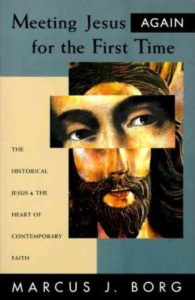
Borg’s book explores Jesus as a historical figure. However, unlike other books in this vein, Borg’s takes things one step further to help his readers understand what the concept of what the historical Jesus means for them in the context of their contemporary faith. He introduces contemporary Christianity as a religion that welcomes everyone and truly does not judge, and one that values concepts such as education and exploration that were not a part of traditional Christianity.
The Heart of Christianity: Rediscovering a Life of Faith
by Marcus J. Borg
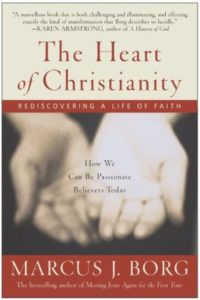
Borg’s second book is a significant exploration into the methods by which a Christian who has lost their faith in God in the traditional sense can rebuild their relationship with God to be even stronger than before. He offers numerous insights, including:
- Exploring the concept of rebuilding a relationship with God.
- Ways for modern Christians to reexamine the way in which they approach their faith.
- Re-thinking traditional Christian practices to implement a post modern Christian practice
- How prayer and pilgrimage can be re-introduced in modern times.
This progressive Christianity book by Borg is an ambitious and ultimately important endeavor, and he really gets to the heart of rediscovering one’s faith in modern times.
Convictions: How I Learned What Matters Most
by Marcus J. Borg
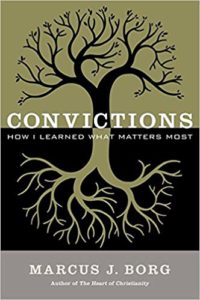
Convictions has been referred to as Borg’s manifesto on how to follow the path to contemporary progressive Christianity. It aims to bring everyone in the world together through the love and hope that people of Christian faith are able to give. He calls upon progressive Christians to deny the exclusivity that has plagued Christianity in the past and instead welcome everybody to celebrate the possibility and joy that post modern Christianity has to offer. Essentially, Borg brings Christianity back to its foundation and helps those practicing or rediscovering their faith to find what truly matters.
Reading the Bible Again for the First Time
by Marcus J. Borg
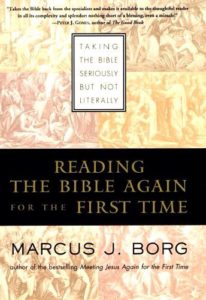
One of Borg’s most popular books, Reading the Bible Again for the First Time helps readers contend with how their belief in the scripture differs from the historical context and the modern-day version of Christianity. Because of the way that the world has changed since the creation of the Bible, many Christians find themselves in conflict with the scripture that serves as the foundation of their religion and the modern context of what it truly means to be a Christian. This book helps all to read the scripture in a way that supplements and encourages progressive Christianity and faith in the modern age.
The Last Week: What the Gospels Really Teach About Jesus’s Final Days in Jerusalem
by Marcus J. Borg and John Dominic Crossan
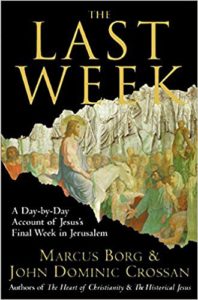
This co-authored book by Borg and Crossan offers a fascinating glimpse into what the last week in Jerusalem was like for Jesus. Following the release of The Passion of the Christ, Borg and Crossan, both experts in progressive Christianity, found themselves fielding a lot of questions about what really happened in the last week that Jesus spent in Jerusalem. It was this lack of knowledge of the truth amongst practicing Christians that led Borg and Crossan to write a day-by-day account of Jesus’ last week in Jerusalem. They cross reference historical facts to the gospel to recreate Holy Week chapter by chapter.
From the Big Bang to God
by Lloyd Geering
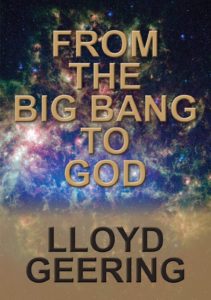
Geering takes an interesting approach to explore the connection between scientific evolution and the Biblical creation of man. It contains fascinating insights, but is not necessarily an easy read.
This heavy-hitter asks readers to reevaluate the relationship (or lack thereof) between science and religion as they know it. Instead of considering evolution and the creation of man as two different belief systems, Geering scientifically and factually outlines the relationship between the evolution of man and the evolution of religion as ways to contend with one’s place in the universe. Trying to bridge the gap between science and faith-based knowledge, this progressive Christianity book openly invites everyone to understand what religion and progressive Christianity really means in conjunction with evolutionary science.
Embracing the Human Jesus
by David Galston
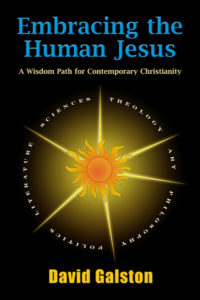
David Galston is the well-known author of a few top theological books including:
- God’s Human Future
- Archives and the Event of God
Embracing the Human is one of his boldest endeavors as he tries to break away from the near mythical perception of Jesus that is portrayed in the Bible. Galston aims instead to help readers understand what progressive Christianity is really all about and perceive Jesus as the human being that he was historically. By humanizing Jesus, Galston brings to light the real human qualities in Jesus that practicing Christians are able to emanate and put into practice in their everyday lives.
Conclusion
Using progressive Christianity books such as these to supplement, better understand, and redefine one’s faith is what being a Christian in the modern world is all about. The Christian religion is something that is ever-changing and adapting with the times although its central tenets (and central text) remain the same. It is important to recognize what parts of the Bible were historically accurate and what parts may have had a heavy human influence in their narrative. Using Biblical Scholarship, you can understand how to reconcile questions of faith with the post modern world.
If you feel any of these books calling to you and you want to explore your faith through the literature, learn more about these books!
